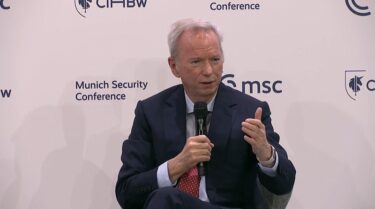Circular economy proponents don’t value individual ownership; they favor neo-feudalism & technocracy: perspective
The World Economic Forum (WEF) is once again pushing businesses towards a circular economy where every product is track-and-traced and becomes a rentable service.
The infamous phrase, “You’ll Own Nothing. And You’ll Be Happy,” was based on circular economy business models, specifically, Product-as-a-Service, and the WEF is doubling down on this circular agenda in a new report.
“Product-as-a-service and pay-per-use reinvent the business model by increasing usage frequency and often retaining ownership of products. These models de-emphasize the sale of physical goods and focus on the outcome that customers want“
WEF, Circular Transformation of Industries: Unlocking Economic Value, January 2025
Last week, the WEF released a joint report with Bain & Company and the University of Cambridge entitled, “Circular Transformation of Industries: Unlocking Economic Value,” which makes the argument for businesses to switch to circularity using three “archetypes.”
The first archetype has to do with manufacturing goods that can be recycled.
Can’t argue with that.
The second archetype has to do with expanding the lifespan of goods and products.
So far, so good.
The third archetype is all about own nothing, be happy business models, which the authors call “capacity-sharing solutions.”
Wait, what?
According to the report:
“Capacity-sharing solutions, such as product-as-a-service and pay-per-use, reinvent the business model by increasing usage frequency and often retaining ownership of products.
“These models de-emphasize the sale of physical goods and focus on the outcome that customers want.”
Here, the authors assume that customers don’t like owning things, just using things that don’t belong to them.
When it comes to convincing established businesses to switch to circular strategies, the report says this might take some time because they have “capital-intensive assets for which they must maximize returns.”
Imagine that! Businesses having a fiduciary duty to their shareholders is seen as an obstacle to the stakeholder capitalists’ vision for a circular economy.
“By sharing products among many users, a reduced number of products is required to satisfy customer demand”
WEF, Circular Transformation of Industries: Unlocking Economic Value, January 2025
Another obstacle to circular economy adoption mentioned in the report is the fact that many businesses pride themselves on creating and “marketing the value of ownership.”
Circular economy proponents don’t value ownership.
In fact, the whole idea is to move away from ownership and accumulation and towards neo-feudalism and technocracy where you and I are the peasants to our technocratic overlords.
“While some disrupters have already proven the viability of sharing models, established businesses can struggle to adopt these new business models as they face structural challenges,” the authors write.
“They often have long-standing profit pools to defend, capital-intensive assets for which they must maximize returns and a legacy of marketing the value of ownership.
“Yet, there are examples where legacy players have successfully managed to bridge the transition of their capital structure to establish sharing models.”
“While there are fewer products in circulation with capacity-sharing models, the manufacturers must retain ownership until the end of life”
WEF, Circular Transformation of Industries: Unlocking Economic Value, January 2025
If you and I are supposed to own nothing and be happy, somebody has to own the stuff we don’t own. Those people include manufacturers and what the WEF has previously called an “asset” class of owners.
According to a WEF Agenda blog post from 2022, the author suggests that a circular economy could help tackle Sri Lanka’s economic crisis whereby “a smaller number of asset owners will take custodianship of assets to keep them in use and provide services to many users based on consumption.”
They go on to say that “the advantage of a concept like circular economy is that the payment is related to the level of consumption, rather than […] the price of ownership.”
And in order to keep track of the products that corporations rent out to us, the latest report says that the Internet of Things (IoT) will play a significant role.
“Internet of Things (IoT) applications help identify the right time for lifespan extension measures, helping to preserve assets at their maximum value for the longest possible time”
WEF, Circular Transformation of Industries: Unlocking Economic Value, January 2025
According to the report, “Lifespan extension solutions depend on the ability to track and monitor used products, requiring businesses to leverage data and technology in innovative ways.”
Therefore, “Data connectivity is critical to monitor sold products in real time, from how they are used to the state of wear and tear.”
One example of track-and-trace technology being deployed for circular economy purposes mentioned in the report was a partnership between the WEF and Ralph Lauren to give a digital identity to clothing using QR codes:
“Ralph Lauren has collaborated with the World Economic Forum and select members to pilot its digital product identification system that will allow resellers to validate product authenticity quickly via a QR (quick response) code, increasing the desirability of reuse while preserving brand identity and enhancing the customer experience in the second-hand market.”
While proponents of the circular economy agenda highlight recycling, re-usability, and durability for the good of the planet, these unelected globalists are also pushing for a “you’ll own nothing and be happy” scenario that keeps you renting tracked-and-traced products for the rest of your life.











